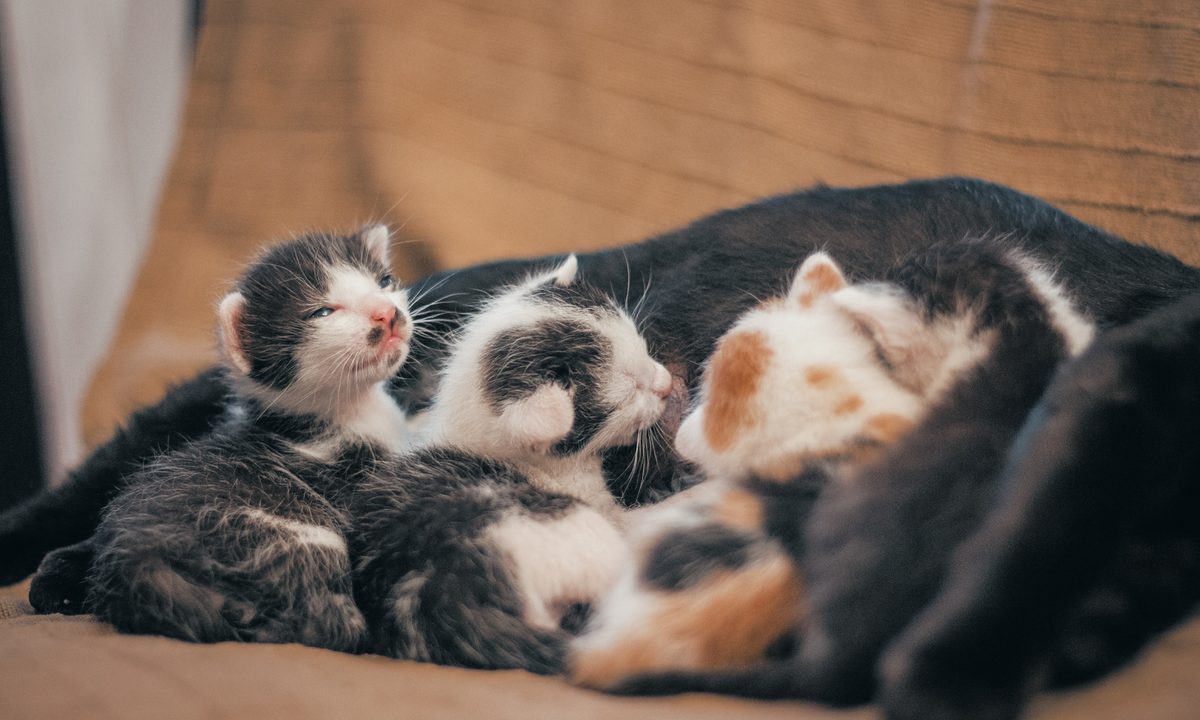First of all, congratulations on your furry new arrivals! The first time newborn kittens open their giant eyes, you'll feel like the best cat parent in the world. Whether your cat’s litter was planned or a happy accident, there’s no denying that welcoming newborn kittens into the world is exciting. But kitten care can also be a lot of work.
Caring for kittens isn't for the faint of heart. Between learning how to feed them and how to help them potty, you'll be in the thick of things. Thankfully, we have some good news: You can care for newborn kittens without it becoming a second job. Here’s what you need to know.
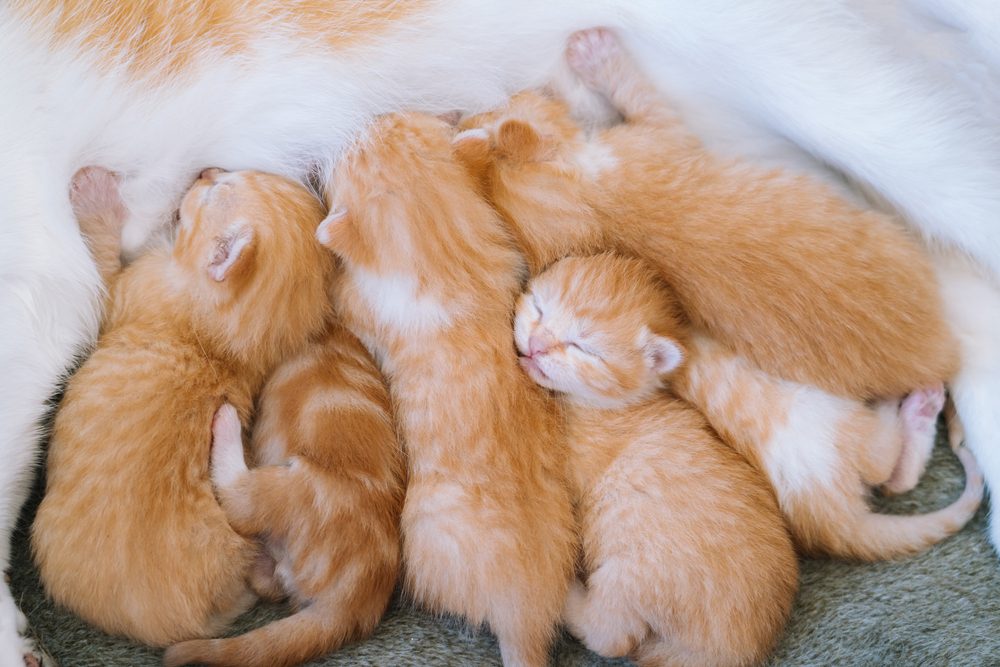
How to care for newborn kittens
Did you know that a kitten is actually considered a newborn until they're 4 weeks old? By that point, they are old enough to begin weaning off their mother’s milk, learning how to socialize with their littermates, and hitting important developmental milestones.
So, how do you care for these tiny, precious kittens in the meantime? We’re here to help you out. Let’s take a look at what the experts say about kitten care.
Step 1: Handle the kittens as little as possible.
If all goes well during the birthing process, the new mama cat will take on the bulk of kitten care. Vets recommend only touching kittens in a few circumstances until their eyes are open, which happens at about 10 days old. This gives Mom and kittens the chance to bond without interruption.
If you do need to handle newborn kittens, be sure to wear gloves and wash your hands before and after the interaction.
Step 2: Let your cat set the pace.
Just as human mothers have strong maternal instincts, so do feline mothers. While formula is useful and convenient, nothing is better for kittens than their mother’s milk, which provides all the essential nutrients they need to grow healthy and strong. However, some mothers are unable to produce enough milk, and others even neglect their newborns.
If that’s the case, you’ll want to bottle-feed your kittens and help them eliminate waste and urine every 3 hours. (If the kittens are especially tiny, you’ll need to do this every 2 hours.) However, it's essential to contact your cat's veterinarian if one or more kittens have trouble nursing, or if your cat ignores one or more of her newborns.
Step 3: Make sure the kittens stay warm.
Not only are kittens born deaf and blind, but they’re also born without the ability to regulate their temperature. Provide clean, warm bedding for the mother cat and her babies, and don’t let your furry family sleep in a drafty room.
You should keep the kittens in an extremely warm room — 85 to 90 degrees Fahrenheit is ideal. (If you don’t have central heating and air, pet-safe space heaters and heating pads may be your best bet.)
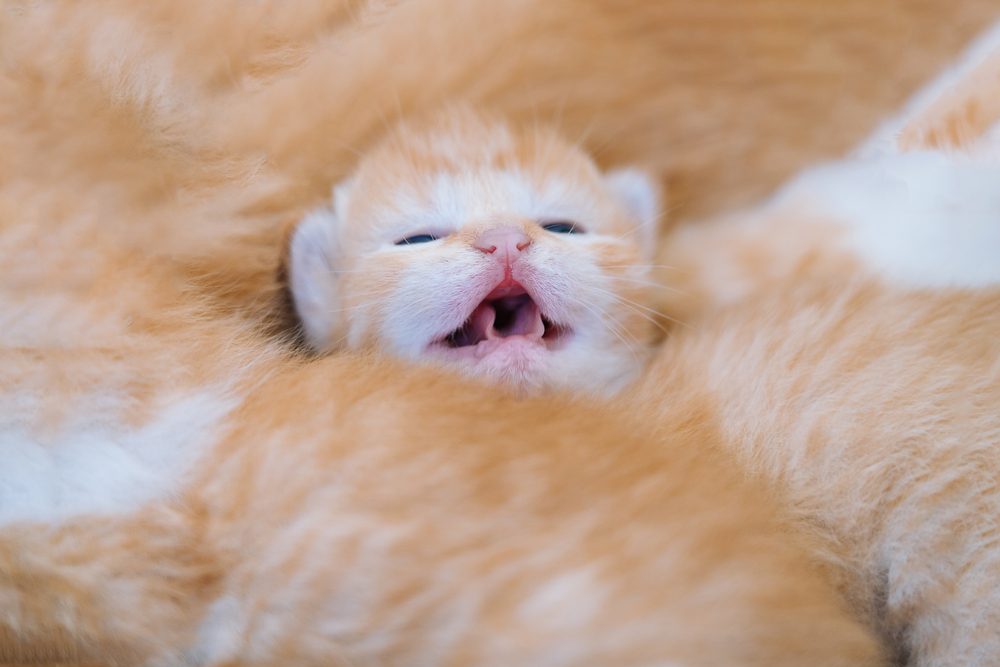
How long can newborn kittens go without eating?
Newborn kittens are completely reliant on their mother (or you). She nurses them, bathes them, keeps them warm, and comforts them when they’re frightened. In an ideal world, no kitten would ever be separated from their mother before they're ready. Unfortunately, tragedies happen. If you find an abandoned litter or your kittens are unable to nurse from their mother for any reason, they’ll only survive around 12 hours without milk.
Older babies may live as many as four days without nursing, but time is of the essence. If you suspect your kittens aren’t eating enough — or fear they may have stopped eating — it’s time for a trip to the vet. Delaying veterinary treatment could have heartbreaking consequences.
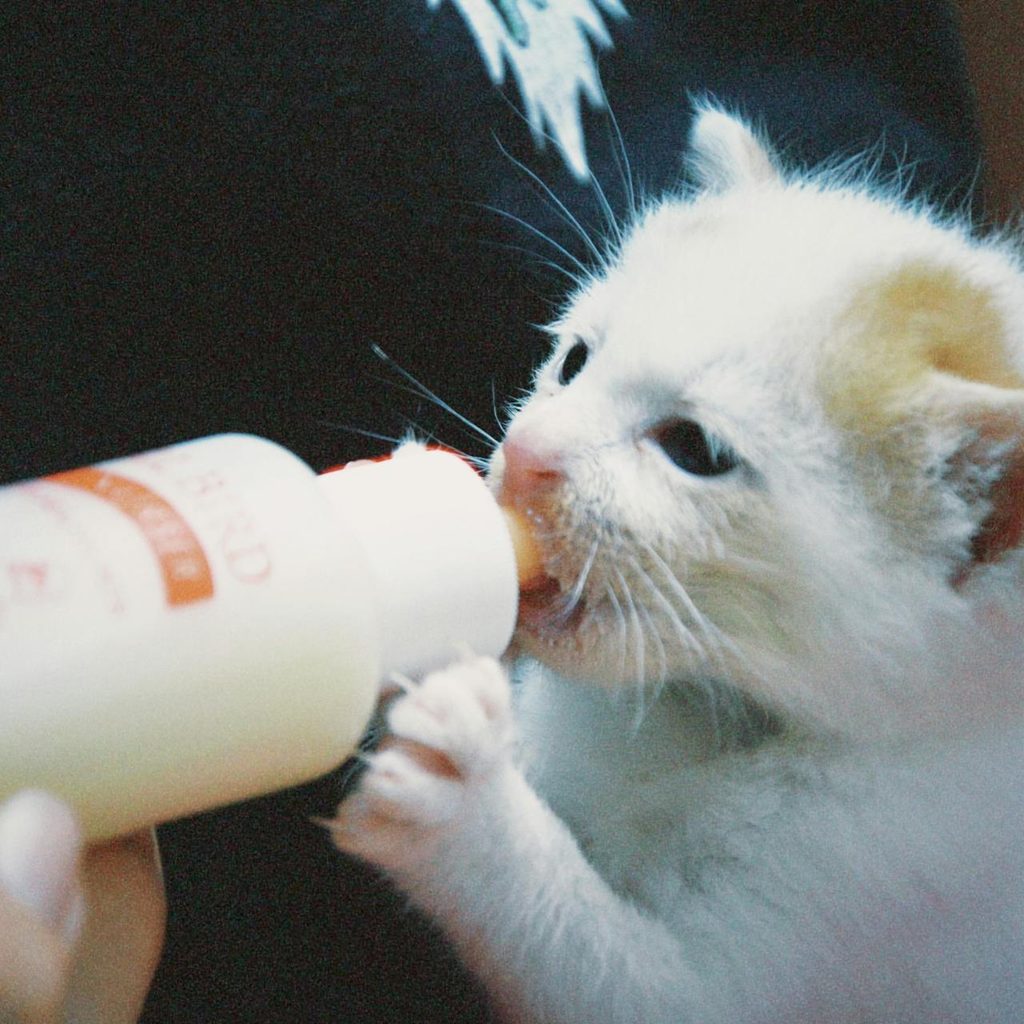
How to feed newborn kittens in an emergency
Unfortunately, some mother cats refuse to nurse their kittens, while others may experience health problems that cause their milk to dry up ahead of schedule, leading to dehydration, malnourishment, and even death if you can’t supplement the kittens’ diet — and fast.
Kitten formula is the next best thing, but what happens if you can’t find any? Not everyone lives in an area with 24/7 supermarkets. One option, you can double the strength of any brand of baby formula and use that.
In case of an emergency, we’ve found one of the easiest kitten formula recipes you can make with ingredients you most likely already have in your kitchen.
DIY emergency kitten formula recipe
While vets say a combination of one egg yolk, unflavored gelatin, whole goat’s milk, Karo syrup, and goat’s milk yogurt is the preferred emergency formula, let’s be honest. Do you even know where to buy goat’s milk and goat’s milk yogurt? Because we sure don’t. Fortunately, there’s an easier recipe you can follow. You’ll need:
- 1 teaspoon vegetable oil
- 2 egg yolks
- 8 ounces whole milk (homogenized only)
You’ll want to warm the mixture just as you would store-bought kitten formula, and you can store the leftovers in the fridge. If you have liquid pediatric vitamins on hand, adding a dropperful will provide additional nutrients.
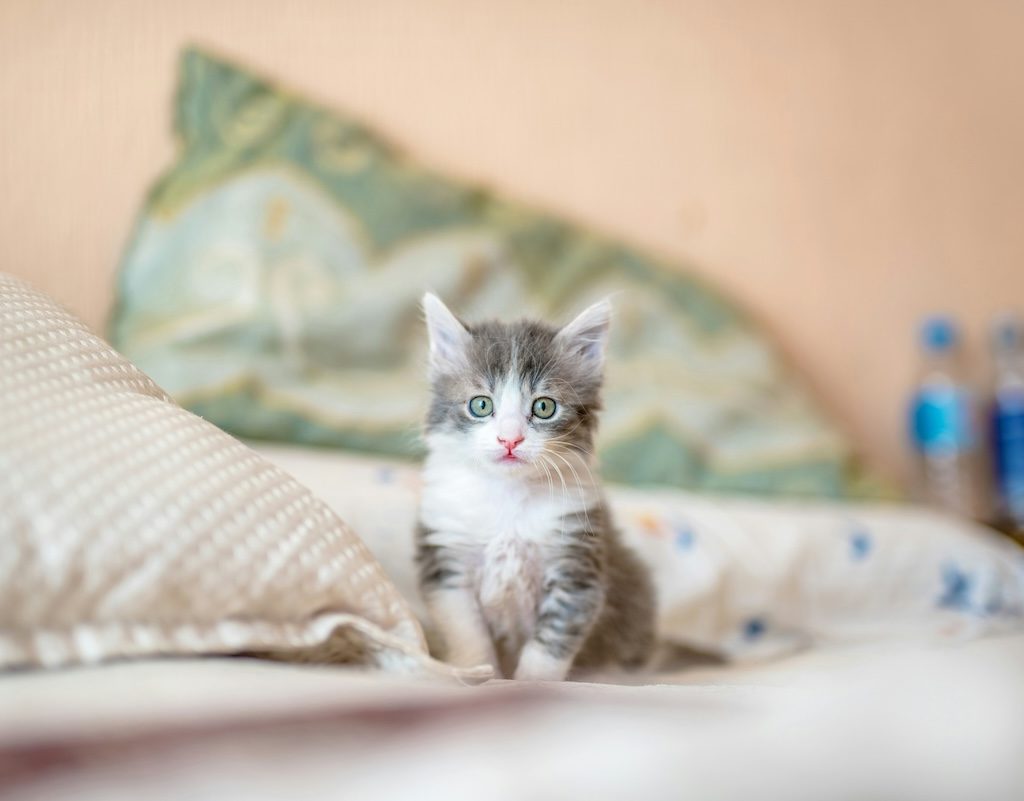
Helping newborn kittens eliminate
Newborn kittens can't urinate or defecate on their own, so it's essential that they get help to stimulate elimination. Normally, the kittens' mother would lick the area to encourage the cats to relieve themselves after feeding, but if you have orphaned kittens, you'll need to help them yourself.
To do this, use a soft cloth or tissue to rub in a circular area around the kittens' genitals and anus. Continue stimulating their bottom until they've finished their business, and be sure to do this again after every feeding.
Around 4 weeks old, kittens may start to use a shallow litter box on their own, but you should continue stimulating them at each feeding until you see them using the litter box regularly.
Is there anything more adorable than a litter of newborn kittens? Nope. But newborn kittens, like all newborns, require a ton of work. Luckily, there are a few things you can do to make the process easier. If you plan ahead, allow your cat to care for her kittens, and seek veterinary assistance when you need it, caring for your new kittens will be a joy rather than a hassle.
